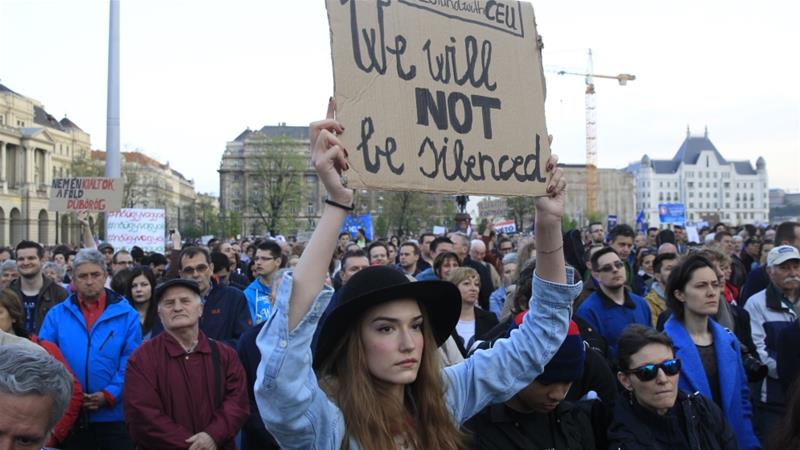
(…)
STEPHANIE NEWMAN: What impact do you think the Trump administration has had in emboldening Orbán and influencing Hungary’s direction overall?
ANDREA PETŐ: As I see US politics from here, there’s much more resistance through the judiciary and the media than there is in Hungary. Our illiberal state is a new form of governance, not a backlash. Nothing will go back to the way it used to be. Because of independent media in the United States, there hasn’t been the same kind of takeover as in Hungary.
On the other hand, there is this transnational network of politicians and public intellectuals who are meeting and strategizing. The World Congress of Families is an American fundamentalist Christian organization, and, along with the International Organization for the Family, they’ll be meeting here in Budapest from May 25–28, 2017. They support banning abortion and promoting the family as a heteronormative unit. Last year, the conference was in the Caucuses, in Georgia, and there were lots of Russian delegates there. In 2015, the conference was in Salt Lake City, Utah. Of course, there is this very strange alliance between the fundamentalist Christians and Russian intellectuals, and now the honorary leader of this latest four-day conference is our Prime Minister Viktor Orbán. The organizer is the state secretary for Hungary’s Ministry of Human Capital, which covers social affairs, education, and culture. So, the state secretary responsible for family affairs will be the keynote speaker at this extremely controversial “World Congress of Families.”
In one of your pieces for openDemocracy, you mention the government’s promotion of a more traditional family structure. Is this related?
Yes, but this “traditional family structure” is not as traditional as you might imagine. The illiberal state has a very different family policy from Christian conservatives. Our government has the rhetoric of promoting all families, but not the practice. I wrote this article about the Polypore state with Weronika Grzebalska [a PhD researcher at Graduate School for Social Research, Polish Academy of Sciences] comparing women’s politics in Poland and Hungary. The Polypore state is working with securitization, familialism, and constructing alternative NGOs that mirror existing institutions. The conservative values are only fig leaves. Behind them aren’t values, but power: economic, social, and symbolic power.
That said, if you look at the policies in Hungary, you can’t really see any government attempt to change existing reproductive rights. Abortion today is more or less freely available. Free abortion was introduced by a decree in Hungary in January 1945, after the massive rapes committed by Red Army soldiers, and it was constantly regulated by decrees until 1990, when the constitution needed a higher-level legal framework. In our System of National Cooperation (name of the document replacing the constitution), life must be protected from conception. But the government wouldn’t dare renegotiate how these values will be regulated — with good reason. The number of abortions is decreasing, even though health insurance does not cover pills. Polls are actually showing that more than 70 percent of Hungarian women want to protect the right to an abortion. At the moment, I think what we have is an acceptable compromise, as far as the practice is concerned, for all parties involved.
Another parallel between the United States and Hungary is the rising rate of xenophobia. What was the feminist response to the immigration crisis in 2015, as Syrian refugees crossed into Hungary through Serbia?
This was a transformative moment for everybody, especially for us here in this academic ivory tower. It was important for us that CEU opened its doors to the refugees. The faculty, staff, and students were collecting donations in shifts. In a sense, the non-response and ignorance of the state created space for various civil organizations to flourish. It was also interesting to interact with the Hungarian women who converted to Islam because they had married somebody practicing the religion. They have a very powerful association here in Hungary, and they were the driving force behind this kind of civic initiative, because they spoke the language and, being veiled, had more trust from the women refugees. These Hungarian women had two or three cell phones, and they’d be driving from one place to another to coordinate their humanitarian action. This also proved that the stereotype of the passive Islamic religious woman, who stays home taking care of the kids, is unsustainable. They were out there with their children, organizing and active. The migration crisis changed their position.
(…)

